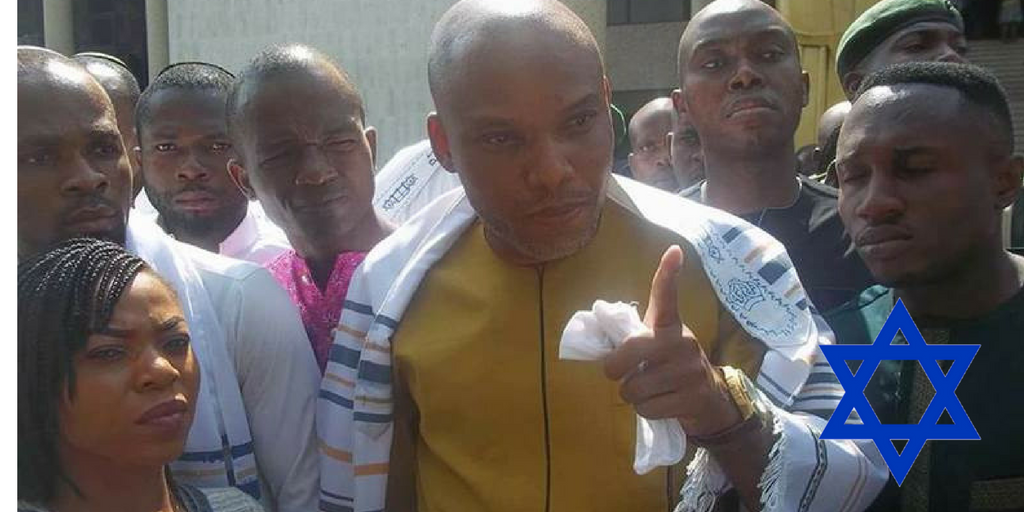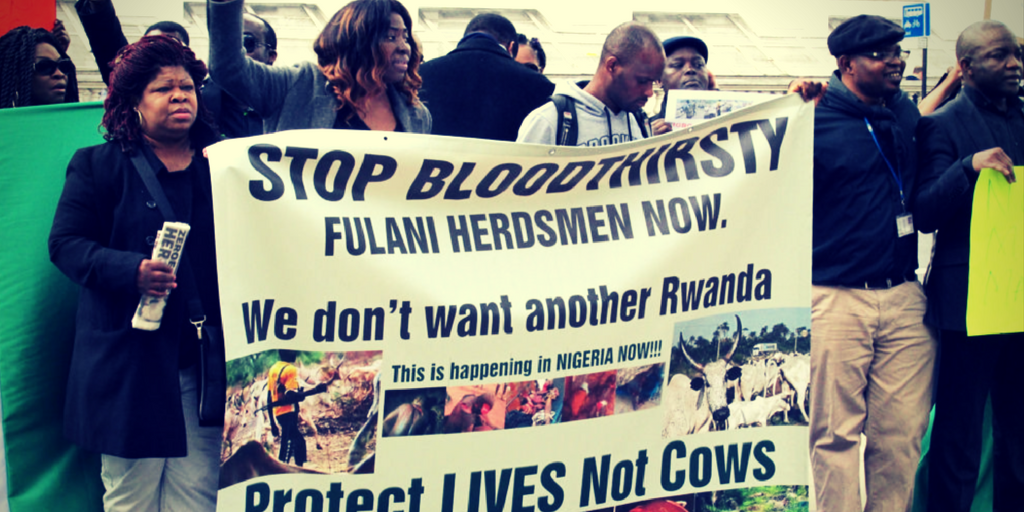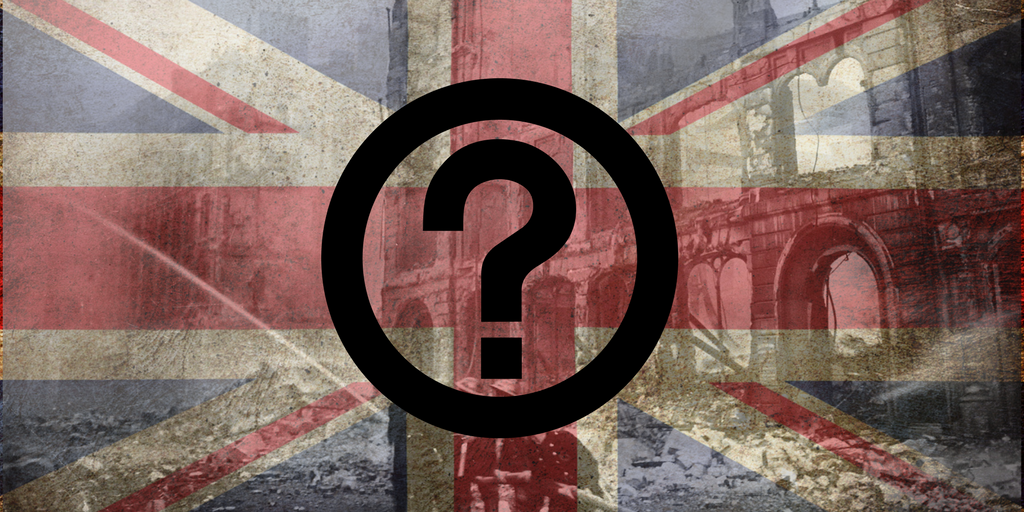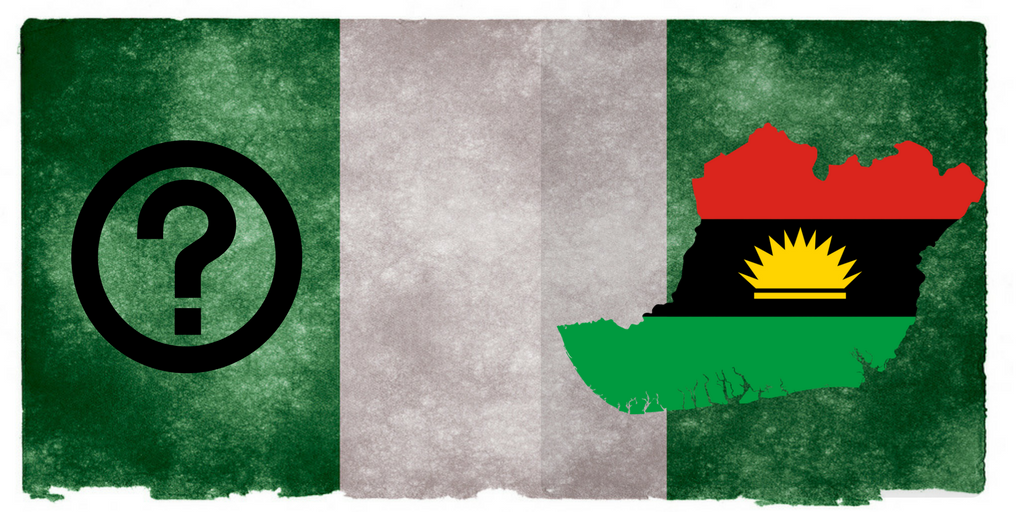1. QUESTION:
Since the September 14 military invasion of the home of IPOB leader, Mazi Nnamdi Kanu, nothing much has been heard about IPOB. Is the organization fear-stricken? Has it recoiled into it’s shell? Is it the end of the agitation? What has actually happening?
ANSWER:
I beg to differ because since that murderous invasion of the home of our leader, we have continued to rally, we successfully boycotted the Anambra State elections, we protested at the deceptive Ohaneze Ndigbo jamboree in Lagos, we opened a high tech international headquarters in Germany, we demonstrated in the open in Onitsha and Aba, we have continued to open new family meetings all over Biafraland, we continue to engage local and international partners, so in reality nothing has changed. Most people unfortunately equate the potency of IPOB with the manifest presence of our leader Mazi Nnamdi Kanu but the fact is that he prepared us to function, even in his absence. If there is anything that will convince the doubters that we are as strong as ever, it is the very advanced stage our preparations for our 2018 referendum has reached. It is very unfortunate that Ohaneze Ndigbo leadership and South East governors eager to justify their collusion with the cold blooded murder of their own people have trumped up the narrative that IPOB has been weakened. It is blatant falsehood that bears no resemblance to reality. Ask the average person on the streets of Biafraland and they will tell you they stand with IPOB. Our activities are more spiritual than physical, that is why they cannot understand how best to tackle our agitation. We don’t know where and how some commentators got the information or impression that IPOB has retreated. You can’t label an unarmed group a terrorist organisation with constant military attacks and active connivance of those you are fighting and working to save like Ohaneze Ndigbo and Igbo Governors then expect our trajectory not to be altered. We gave order for our people to boycott Anambra elections which was complied with. Akwa Ibom and Enugu State elections were successfully boycotted too before that. We stopped the poisonous Army vaccine program also. If not for INEC falsified figures, Anambra State elections would have been declared null and void as less than 1% of total registered voters took part in the whole exercise. We IPOB can do many things but we don’t have the power to stop INEC from hyper inflating their figures to 17%.
2. MY QUESTION:
There is still much suspense in the public in the public domain over the disappearance of IPOB leader, Mazi Nnamdi Kanu. What is the feeling in IPOB circles and what are you doing to resolve this seeming mystery?
ANSWER:
It is common knowledge and an open fact that before Nigerian Army invaded our leaders compound on 14th September this year he was moving from place to place holding rallies and meetings without fear or favour. He single handedly through the grace of God, brought South East and South South together for the first time in 50 years. We know that Aso Rock ordered the Nigerian Army led by Buratai with the approval of the 5 South East governors with Nnia Nwodo the president General of Ohaneze Ndigbo, to kill Nnamdi Kanu and his family in his home on the 14th of September 2017. The video footage and still photographs are in the public domain for those too blinded by hypocrisy to see what truly transpired. Every right thinking and conscientious person is missing the absence of our leader especially the rank and file membership. The disappearance of our leader Mazi Nnamdi Kanu, presumably killed by the Nigerian Army, is a huge blow but not a terminal setback for our movement. What it did is to galvanize and enthuse we die-hard Biafrans even more to accomplish the liberation of our land which was what he lived for. Whoever ordered the deadly invasion of his home or kidnapped him will eventually answer to the people because dead or alive Nnamdi Kanu must be produced by this Buhari government.
3. MY QUESTION:
With the disappearance of Mazi Nnamdi Kanu, the agitation for Biafra seems to have lost steam. What has accounted for this?
ANSWER:
Actually the disappearance of our leader Mazi Nnamdi Kanu has had the opposite effect to what our enemies intended. It made us to become more determined and focused contrary to media speculations and insinuations of the chattering classes. Quite rightly we feel angry and enraged that our leader was the victim of assassination plot and conspiracy by those he was fighting to liberate from slavery. We never knew the extent envy and jealousy could have driven Ohaneze Ndigbo leadership and South East governors until pictures emerged of Gov. Okezie Ikpeazu receiving items looted from Kanu’s compound in Government House Umuahia in the company of the Inspector General of Police and other representatives of security services. The pictures are now with the prosecutors in the Hague and will be made available to the public in the coming weeks. Rather than losing steam, the collusion of Ohaneze Ndigbo and Igbo governors with Aso Rock to invade the home of our leader and kill him have made our agitation to grow from strength to strength. No doubt we miss his awe inspiring words of encouragement delivered with fearless. IPOB is the largest single mass movement on earth, therefore the decision to restore Biafra sovereignty is an indestructible sacred oath forged in blood which cannot loose steam because of the disappearance of our leader, no matter how important his physical presence is to the movement. He succeeded in planting the unquenchable spirit of Biafra into the life of millions all over the world. Let me ask you this question, since the invasion of our leader’s home have you not been seeing series of peaceful protests and rallies going on around the world including IPOB show of force in Anambra State on 16th November 2017 with another IPOB protest in Aba after Anambra State governorship election? IPOB family members worldwide are formidable, relentless, resolute and determined to restore Biafra. No man born of woman can stop the emergence of Biafra as an independent political entity under God. No amount of unprovoked unlawful killings by the Northern Muslim dominated Nigerian Army or betrayal by the likes of Ohaneze Ndigbo and South East governors can stop us.
4. MY QUESTION:
What manner of support/cooperation has IPOB received from her international allies, particularly in the wake of the Operation Python Dance II crackdown, proscription and branding of IPOB as a terrorist organization.
ANSWER:
Our contact and reach is extensive all over the world. Don’t forget that we have presence in over 100 countries and territories around the world. We are the singular largest political mass movement in the world. There is no leadership of a country or career diplomat anywhere in the world that doesn’t know about IPOB and what our leaders stands for. In Argentine universities, IPOB and the ideology of Nnamdi Kanu are subjects of academic study. While we are not at liberty to divulge sensitive details about our operations and diplomatic alliances, the location of our global headquarters coupled with rejection of the terrorist tag by USA, EU and Britain speaks volumes. IPOB is a well refined freedom fighting organisation. We have professionals, academics, artisans and highly skilled strategists all over the world that knows how to get things done. The diplomatic isolation we suffered during the darkest days of the war will not happen again, neither will we pushed to war ill equipped and ill prepared. Honestly, the cooperation we are getting is encouraging.
5. MY QUESTION:
Has IPOB taken stock of its losses, human and material, during the Operation Python Dance II in the South East.
ANSWER:
Yes we have. The pain and hurt we feel inside our hearts is like catalyst that fuel our rage against this oppressive state of Nigeria and her corrupt leadership. We are guided by the sacrifices of those we lost and the ones in detention, so we owe it their memory as a duty to restore Biafra in their honour. Since the inception of our noble quest to liberate our land, we have suffered untold and unquantifiable human and material hardship but in the end our freedom will be a befitting reward. We cannot fail to mention those that fell at Uga Junction near Head Bridge Onitsha on 31st August 2015, 2nd and 17th December 2015 at the same Head Bridge Onitsha. Those murdered in cold blood on February 9, 2016 at National High School Aba. The massacre at Nkpor on 29th and 30th of May 2016 of those that came to remember our war heroes. We also remember those who lost their lives on 20th January 2017 during our solidarity rally in support of the swearing in of Donald J. Trump then newly elected President of America. At that peaceful rally in Igweocha Rivers State, the Nigerian Government and her security operatives especially the Army and Police shot and killed 21 innocent civilians in cold blood. Most recently the invasion of our leader’s compound that consumed the lives of 28 civilians. We remember that were tortured and killed in Aba during Operation Python Dance. We will continue to hold Buhari, Buratai, Nnia Nwodo, Ohaneze Ndigbo and 5 South East governors responsible for the death of our people.
6. MY QUESTION:
Is IPOB seeking redress in any form?
ANSWER:
Those complicit in the death of innocent IPOB family members will never be forgiven. Ikpeazu, Obiano, Umahi and Nnia Nwodo must be made to face the consequences of their treachery at the appropriate time. It is one thing to collude with our oppressors to keep us down as slaves which is a forgivable crime, the idea of inviting them to come to our land and kill us as these people mentioned above did is unforgivable before God and man. They will face the full might of the law in civilised countries where the rule of law applies. We have filed processes in US courts and ICC in the Hague. Our team of international lawyers led by the renowned prosecutor Bruce Fein is working tirelessly hard to ensure justice is served. The best redress we can ever have apart from making sure Nwodo, South East governors, Buhari and Buratai are jailed for their crimes against humanity is to free Biafra from Nigeria. In this regard, our upcoming referendum is vitally important.
7. MY QUESTION:
IPOB was seen as using Anambra guber poll as a bait to secure referendum on Biafra. The election held and no date for referendum was given. Don’t you think that many may no longer take you group serious?
ANSWER:
How can you come to such conclusion given the facts on the ground? IPOB successful boycott of Anambra Governorship election is part of our standing commitment never to participate in any electoral exercise organised by INEC. We ordered for boycott of Anambra election on November 18 which our people heeded with less than 1% of total registered voter participation. The fact that INEC chose to massage the figures on the orders of Aso Rock does not alter the fact that the elections were successfully boycotted. For a country that throughout its history has been steeped in fraud, lies and deception, fair play will never rank as one of their key attributes. Were you expecting INEC to say that less than 1% voted so that credit will go to IPOB for successfully stopping the elections? Of course not. But we are satisfied that our approach is working. How can anybody say that people no longer take us seriously when the same people send their soldiers to shoot us anytime we peacefully gather together. If people no longer listen to us how come we stopped military compulsory vaccination program? Even Northerner listened to us and refused their soldiers to vaccinate their children. All over Nigeria people followed the instructions of IPOB and withdrew their children from school. It was when we gave the all clear that our children were allowed to return to school. We successfully boycotted LGA election in Enugu State on November 2, 2017. The same boycott strategy was deployed to render the Akwa Ibom Local Government Election meaningless. If you want to see or know what IPOB can do ask the proprietors of GT Bank. How can it be said that IPOB retreated into its she’ll when IPOB has ensured that all known traitors and saboteurs in Biafraland have been identified and are fast losing their relevance before the people. Nobody is taking what these saboteurs are saying very serious again. Our relentlessness made it possible for Nnia Nwodo to confess that he is a saboteur. Have you forgotten that we exposed the hypocrisy of Ohaneze Ndigbo led by Chief Nnia Nwodo at their Lagos jamboree conference late last year.
8.MY QUESTION:
Seriously speaking, do you think that IPOB will succeed without the support of political, religious and community leaders, the intelligentsia and civil society groups from the South East.
ANSWER:
We have already succeeded because the same people you alluded to, or at least the seriously minded of them, are with us. There is no right thinking Biafran that is not in support of IPOB. Those who are opposed to what we are doing like Nnia Nwodo and South East governors are only doing so to please those that put them in power. Don’t forget that the Nwodo family owe their rise in politics to Hausa Fulani patronage. Therefore they will always serve their master. The governors on the other hand know that if the don’t tow the line of their Northern masters, they will be removed from office through the courts or worse. No other organisation can boast of the level intellectual resource at the disposal of IPOB.
We successfully opened our new world headquarters on 7th and 8th December last year in Langerfield Germany where all the relevant information and correspondence pertaining to IPOB can be sent to or obtained. It is a miracle from God Almighty Chukwu Okike Abiama and testament to our resolve and determination that IPOB is still as strong as ever despite the opposition of corrupt leadership and morally bankrupt politicians across Biafraland.
9. My QUESTION:
What is your message to Ndigbo.
ANSWER:
Biafra is not about Igbo speaking people alone, our national coordinator is an Ijaw, his deputy is Ibibio. My message to Biafrans at home and abroad, particularly those who are still to join the struggle for Biafra freedom, is for them to do so now before it’s too late. They must disregard the antics of our detractors and saboteurs who will do anything to keep us divided thereby allowing the Arewa caliphate to keep treating us as their conquered slaves.
In closing this year may be the greatest year for the Igbo (Biafran) people, It looks like Nnamdi Kanu has set his people in the right direction .
Thank you for your time , it’s an honor to speak to you , Mazi Chika Edoziem









